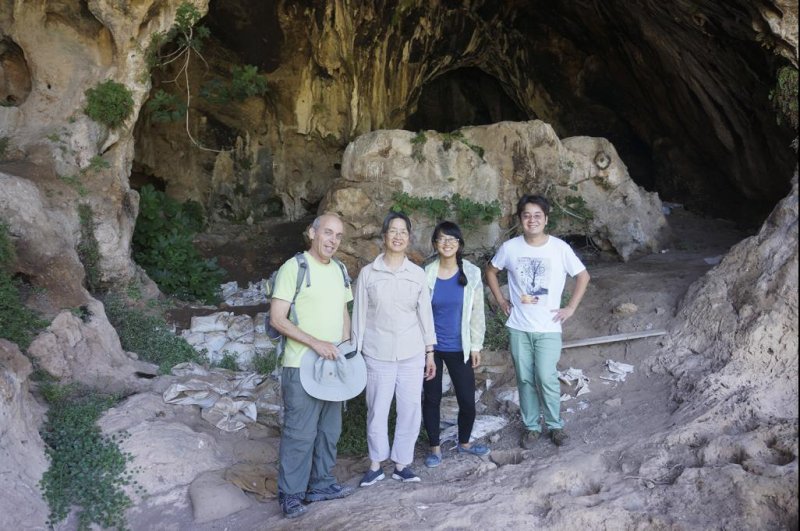Stanford researchers found the world's oldest evidence of beer making inside Raqefet Cave, located near Haifa, Israel. Standing from left to right are: Dani Nadel, Li Liu, Jiajing Wang and Hao Zhao. Photo by Li Liu/Stanford University
Sept. 12 (UPI) -- Researchers have discovered evidence of beer brewing dating to 13,000 years ago, several thousand years before the cultivation of grains in the Near East.
The discovery lends credence to those who argue beer, not bread, inspired the earliest grain growers.
Scientists didn't find beer steins or stout recipes. Instead, they found telling plant residues on stone mortars inside a cave used as a burial site by the Natufian people, a group of hunter-gatherers living in the Levant, a region in the eastern Mediterranean.
"We did not set out to find alcohol in the stone mortars, but just wanted to investigate what plant foods people may have consumed because very little data was available in the archaeological record," Stanford archaeologist Li Liu said in a news release.
Researchers collected residues from the cave, located near Haifa, Israel, and returned to the lab. Analysis of the samples revealed the presence of starch and phytolith, microscopic plant particles, both byproducts of the transformation of wheat and barley into beer.
Liu and her colleagues believe the Natufians began the brewing process by turning wheat and barley starch into malt. They did this by germinating the grains in water and then allowing them to dry. Malt could be dried and stored for later use.
To brew beer, the early hunter-gatherers mashed the malt and then heated it in water. The concoction was then allowed to sit and ferment with airborne wild yeast.
When researchers recreated the ancient brewing process in the lab, they produced starch granules similar to those found in the cave.
"This accounts for the oldest record of man-made alcohol in the world," Liu said of their findings, detailed this week in the Journal of Archaeological Science: Reports.
Researchers believe the Natufians brewed and drank beer as part of burial ceremonies and rituals.
"Beer making was an integral part of rituals and feasting, a social regulatory mechanism in hierarchical societies," said Jiajing Wang, a Stanford doctoral student studying East Asian languages and cultures.
The discovery of ancient beer brewing suggests an advanced level of technological innovation and social sophistication within Natufian culture.















